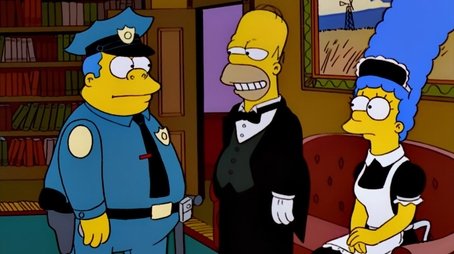
Sorry, we have not watched this yet.

While faced with community service for abusing an endangered insect, Homer begins assisting an elderly woman named Mrs. Bellamy. One night, Mrs. Bellamy is murdered, and Homer and Marge are accused of committing the crime.
Sorry, we have not watched this yet.